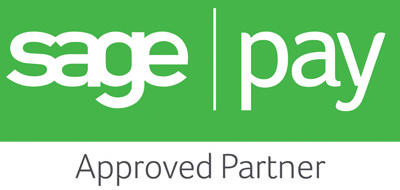6 Ways to Improve Your Website Performance
There are two ways to define website performance – the technical and the experiential. The technical performance of your website encompasses how long it takes to load a page, how well it is optimised for SEO (evidenced by your rank in search engines) and how secure it is. The experiential aspect relates to how visitors move around your website, how easily they can share content and what they learn from their visit. It also incorporates page loading speeds and design, so read on for our top 6 aspects of website management that can improve the performance of your website from both angles.
1 – Page loading speed
The speed at which your pages load is a vitally important technical aspect which impacts on the customer experience. Nowadays our patience is so stretched that we're likely to leave a website before the page loads if it takes more than 5 seconds (and some of us will only allow 2 seconds of loading time before we move on). Of course, an individual's internet connection is partly to blame for a slow loading website but you're able to make it as quick as possible by removing clunky code or animations that take time to load and by investing in great hosting services.
2 – Security
If you sell online you'll need an SSL certificate to reassure customers that their transaction is secure but it's worth having even if you don't do any e-commerce. A site with an SSL certificate displays a padlock icon in the address bar of most browsers, showing customers at a glance that they're safe to input their card details. Google also sees an SSL certificate as a sign of trustworthiness so don't underestimate the SEO aspect of following these best practices even if you don't take payments on your website.
3 – Navigation
Website navigation is another half-technical, half-experiential aspect of running a website. If the navigation on your website is unclear and people have to try multiple pages to find what they want, they're likely to leave (especially so if your page load speed is low as they won't stick around waiting for 6 or 7 pages to load on the off chance they contain the information they want).This is a case of the technical impacting the experiential, as customers won't be impressed by a website they can't easily find their way around. Make sure visitors don't have to make more than 3 clicks to find the information they need.
4 – Social sharing
Social media is huge, even if you don't personally use it much your customers absolutely will. Make sure each page (especially those in your blog) has clear social share buttons to make it easy for those website visitors who are impressed by your content to share it with their network. It's a quick and easy job to do and aids your organic advertising strategy with minimal work.
5 – Design
The design and layout of your website is so important because that first visual impression is locked in within a couple of seconds. Websites with too much going on can be overwhelming for a first-time visitor (especially if they've already trawled through other websites in their research journey) while those with a more minimal look can actually be hard to navigate. Make sure your layout balances white space with content (text and visuals) to ensure the content has space to breathe and can stand out. Even the best content can be overlooked if it's buried inside complicated or overly colourful page layouts.
6 – Blogging
Blogs are a great way to tick off several things on your marketing wish list. They're the best place for content (and we all know that websites which regularly publish new content are looked upon favourably), they can showcase testimonials, success stories and useful information for product owners and they're also great for social marketing strategies as you can post about your new article on social media and get them shared far and wide. Blog entries are also excellent for linking, both internally and for link building programmes. If you don't already have a blog, it's never too late to start.
If any of these 6 ways to improve website performance aren't already being addressed then get in touch with us today and we'll get you flying.
